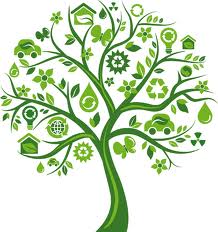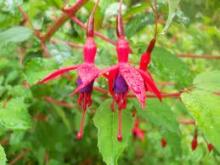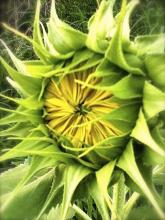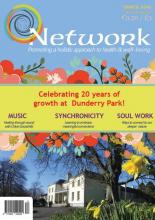Permaculture Tips - Obtain a Yield

"The yield of a system is theoretically unlimited, or, limited only by the information and imagination of the designer." -Bill Mollisson
Permaculture designs things to be usefull! We aim to obtain at least three uses, or 'yields' from everything. This means that our designs, our choices, our actions, are fruitful and effectively provide for our needs. Too often in our culture we are encouraged to be consumers, this Permaculture principle 'Obtain a Yield', encourages us all to become aware of our potential to be producers.
Growing food (not lawns!)
In many areas the only source of food is the local shop, whilst the gardens we pass by on the way to the shop are lawns which require inputs of energy to maintain and give us very little back. Spaces where we can relax outside are important, and a lawn can provide that function -but many don't, and others are far too big! They provide us an opportunity to spend time, money and energy trying to control nature and keep things tidy! If we are going to put effort into maintaining our gardens we want to get something back from them. Food is a core need of ours which could be a yield from our gardens. Even a small space can become productive growing area.
We are all designers
Anytime we make choices we are designing, and we can think about how we can get more yields from every situation. At one farm where I worked which was quite a distance from the nearest town, we would only travel to the town if there was at least three reasons to do so which could all be stacked into the trip. If someone needed a lift from the train station, we would also do some shopping, visit friends, and deliver produce to customers in town. It's about simple efficiency, using the minimum effort to obtain the maximum effect.

Planning over time
Permaculture based systems are often long term projects. A forest garden, or an agroforestry system for example can require a lot of energy input to initially set up. Ground may have to be prepared, fencing provided and trees and plants which have to be paid for, or grown and planted out may yield little for the first few years. When such systems begin to become established the yields increase and the inputs needed to maintain the system decrease. However, we need to consider what we are going to live on in the meantime. In these examples, while the trees are small we could still use the spaces in between for annual plants such as many vegetables, or for grazing. Other potential yields could come from running workshops on pruning or grafting and other necessary tasks. By taking this approach we can multiply our yields and sustain ourselves whilst our self-maintaining system matures.
Human ecosystems
Each year in Ireland there is a weekend 'All Island' Permaculture Gathering which uses the approach described above, only it's a people, rather than a land based design! The Permaculture Gathering is an event which is created by many people working together over the year. It's 'matures' on the actual weekend of the event, -that is when the whole thing becomes a self maintaining system, when, like a mature forest garden the yields are many and the inputs are few! In the meantime however, when we are developing the site (which changes each year) we use the opportunity to share skills, learn from each other, enhance the site and build network & community. So we enjoy yields throughout the whole process.

Discovering Yields
By reflecting on what we are obtaining from a given situation we can measure how well it is working. We want to design things that work! Measurements of yields may be in many forms; recording quantity or quality of produce, listening to peoples experiences, and also being open to recieving & using unforseen returns which often increase the yield considerably! I find a helpful approach is to ask: what can this situation/land/opportunity give to me? And the other way around: what can I give?
This links nicely into the next principle we will add to our permaculture tool box: 'Apply self regulation & accept feedback'.
Hannah Mole is an Organic farmer, Gardener and Permaculture teacher and designer, living in County Roscommon. For more info, events and courses see www.hannahmole.com
Hannah is running a weekend course called Living Permaculture this July - for more details visit http://networkmagazine.ie/events/living-permaculture-immersive-introduct...
Latest Issue
Upcoming Events
-
17/04/2020 to 26/04/2020
-
18/04/2020
-
23/04/2020
-
15/05/2020 to 23/05/2020
-
16/05/2020 to 17/05/2020
Recent Articles
Article Archive
- November 2011 (2)
- January 2012 (3)
- February 2012 (2)
- March 2012 (2)
- April 2012 (4)
- May 2012 (4)
- June 2012 (1)
- July 2012 (3)
- August 2012 (2)
- October 2012 (2)

